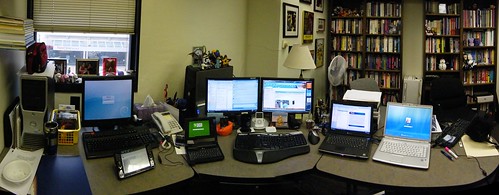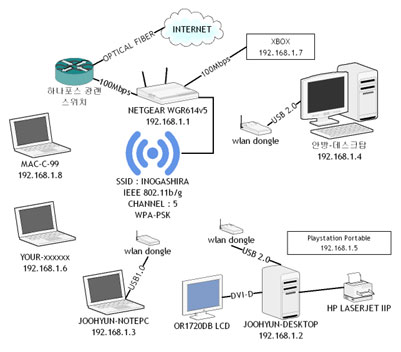
Photo by Travelin Librarian (under CC)
Home Networking Advantages
A home network is a residence-based local area network and it connects multiple computers within the vicinity of the residential area. The simplest of home networks usually connect two or more computing devices so that files, printers, scanners etc. can be shared between these along with a single Internet connection. For increased functionality a server may also be added.
One of the major advantages of home networking in a house with multiple computers is that Internet access can be provided to all the connected computers with the help of a home networking setup in spite of there being only one computer that is physically connected to the Internet via a modem. This is one of the main benefits for which homes with several computers look towards home networking.

Image by kenchanayao (released under CC)
File sharing is another such advantage provided by home networking, providing an extremely effective storage solution. In most home computers, there is a build-up of old files over long periods of time. When new files must be created and stored, it may so happen that there is not enough space on the hard disk of a certain computer which contains too many of such old files. An effective way of dealing with such a situation is to transfer files from the computer to any of the other computers connected in the home network which have adequate memory space. In fact, one computer can be designated the “file server” which stores all these files and every time the file needs to be accessed, the networked computer just has to connect to the file server and retrieve it. As there is only one storage location, data handling is simpler and disk space is saved. Information exchange also provides a big boost to multiplayer gaming and easier file printing by printer sharing.
Home networking generally needs a manual setup. Connecting cables physically interconnect the computers in the home networking setup while hubs, routers or switches interconnect the connected computers to allow file sharing. These devices are therefore information ‘distributors’.
This guest article was written by Amit Bhawani who blogs different How to Guides. You can also write a guest article and share your tips and tools.
No comments:
Post a Comment